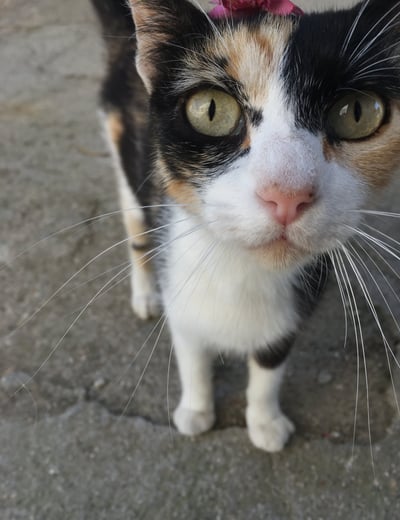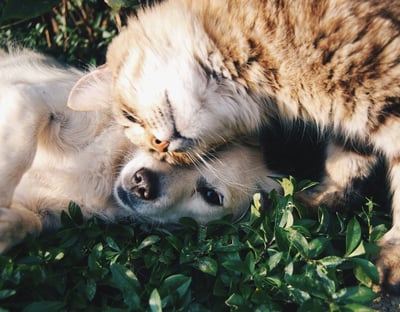Get to know the project
The idea to create The Pet Grieving Project was born from a deeply personal and hard experience. Some time ago, we lost our beloved puppy, Kalma, and our sweet cat, Sonia. Their passing left a void in our lives, and we faced a grief that not many people around us fully understood. We realized that, despite the unconditional love that pets give, support for those grieving their loss is limited and often minimized.
When we searched for ways to heal, we mostly found general advice in blog posts with little practical guidance on how to truly process the pain. We realized that many people face the same challenge—struggling to find effective, accessible tools for grief.
Through research, we discovered that approximately 57% of the world’s population has pets. This means that billions of people worldwide will face the heartbreak of losing a (non-)furry friend at some point in their lives. However, pet loss remains an underestimated and misunderstood grieving process.
At The Pet Grieving Project, our goal is to change this reality. We want every person who goes through the loss of a pet to know that they are not alone. We aim to provide a space of support and understanding, where their pain is validated, and they are given tools to cope with their grief.
In addition to offering direct support, we are committed to educating the community about the importance of this kind of grief. We work to eliminate the stigma associated with phrases like, "It's just an animal," and promote greater empathy toward those going through this difficult process. We believe that by raising awareness and understanding, we can help more people feel accompanied in their pain.
Our mission is to provide comfort, support, and education so that pet loss is treated with the seriousness and respect it deserves. At Pet Grieving, we honor the memory of our beloved pets and walk alongside those who, like us, have felt the deep love and the sad goodbye of a loyal friend.




2500+
Studies reviewed to create the most effective pet grieving program
350+
Different techniques and exercises
in our database


The three pillars of the project
To support pet grief research
Pet grief isn’t studied enough. Participants in our program have the opportunity to contribute to research, helping us discover the best ways to support those who experience pet loss. You can help improve pet grief care.
Loss is an overwhelming experience. We’re here to guide you through the pain of losing a pet, helping you find ways to heal. There is a path forward, and we want to make the journey a little easier for you.
To provide a path to healing






To build social acceptance
Pet grief is real grief. The bond we share with our pets is a special one, and the pain we feel when they’re gone is valid. Our goal is to create a world where people approach pet loss with compassion, support, and understanding.
Cheering those who walked with us


"She was the gentlest soul, never a scratch or bite—just soft purrs and warm cuddles that made us feel at home no matter what."
GOLDIE


"With boundless energy and a wagging tail, our loyal dog never left our side, always ready for a game of fetch or a comforting snuggle after a long day."
KALMA
"Our grumpy little rescue parakeet, always full of sass but with a heart of gold, brightened our days with her quirky attitude and her endless chatter."




PERICA
"Though tiny, our hamster’s curious little paws and adventurous spirit filled our home with endless joy as he explored every corner of his world."
RANGER
Special support for Highly Sensitive Individuals
Losing a pet can be incredibly tough, especially if you're a Highly Sensitive Person (HSP). Some of us on the team are HSPs too, so we really understand the deep emotions that come with it. That's why we've created a program just for HSPs, designed to support you in the ways you need most. Realizing you're an HSP can help you better understand yourself, embrace your sensitivity, and give yourself the compassion you deserve as you process your grief.
Want to learn more about HSPs and pet loss? Check out our blog.
Curious if you're an HSP? Take our quiz


© 2025 Pet Grieving. All rights reserved.


The Pet Grieving Project offers personalized guidance and resources to cope with pet loss for those who need support but do not require professional therapy.
We are open every day of the year to support you whenever you need it.
Created with ❤ to help pet parents heal after their loss.
